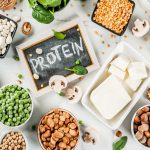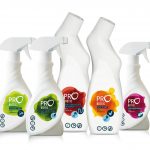New solution to reduce acrylamide levels in coffee
Acrylamide has been considered a potential health risk since Swedish researchers in 2002 discovered that many different starchy foods contain high levels of acrylamide when fried or baked. Coffee is another everyday product that contains acrylamide. “Novozymes is the first company to target acrylamide mitigation in coffee,” says Emmanuel Michelot, Business Development Manager for Food at Novozymes. “Following our high-performing solutions for biscuits and snacks, we are excited to launch Acrylaway® CB L, proven to reduce acrylamide levels in Arabica and Robusta coffees by up to 70%.”
A natural solution to a natural problem
Acrylaway was launched globally in August 2007, initially targeting the baked goods market, and food manufacturers around the globe have since showed active interest in the solution.
“The food industry cares about food safety and acrylamide, and we are working with many of the industry players globally,” says Emmanuel Michelot, “In the case of coffee, it is an industry that has been sensitive to social and environmental sustainability for some time now, so it is not surprising that health is also high on their agenda. Beans treated with Acrylaway CB L enable coffee consumers to kick-start their day with the great-tasting cup of coffee they love, knowing it contains significantly less acrylamide.”
The main mechanism for acrylamide formation involves the amino acid asparagine. Through a cascade of reactions during when coffee beans are roasted, asparagine is converted into acrylamide in a process called the Maillard reaction responsible for color and flavor developments. By adding Acrylaway before roasting the beans, asparagine is converted into another common amino acid, aspartic acid, which does not take part in the formation of acrylamide. The acrylamide level in the final coffee product is significantly reduced.
Potential cost reductions, same cup quality
With the global demand for coffee rising steadily and the cost of beans generally increasing, the importance of ensuring cup quality while containing costs is growing. After the Acrylaway CB L treatment, the acrylamide content is significantly reduced and, particularly noted in the case of lower quality coffee beans, the taste is less bitter. This offers an opportunity to optimize blends across different coffee bean types, giving potential cost reductions.

